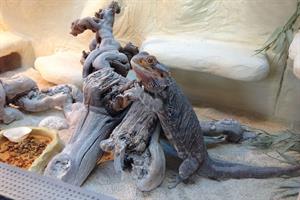PDF chapter test TRY NOW
The surrounding or the space where a person, animal, or a plant lives is called the environment.
The environment is everything that surrounds us. It provides food, water, air, shelter, and the other requirements needed for organisms. Environment has two factors - living (biotic) and non-living (abiotic components).
Biotic factors:
The living things of the environment which includes the plants, animals, bacteria, fungi etc. are called the biotic factors.
Abiotic factors:
The non-living components like air, water, sunlight, and minerals present in the soil are called as the abiotic factors.
The organisms live and constantly interacts with the each other to adapt to the environmental conditions.
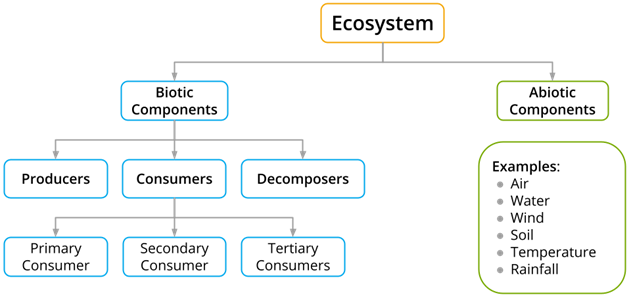
Ecosystem:
An ecosystem is a place or a community where the living and non-living things works together.
Types of ecosystem:
1. Natural
2. Artificial
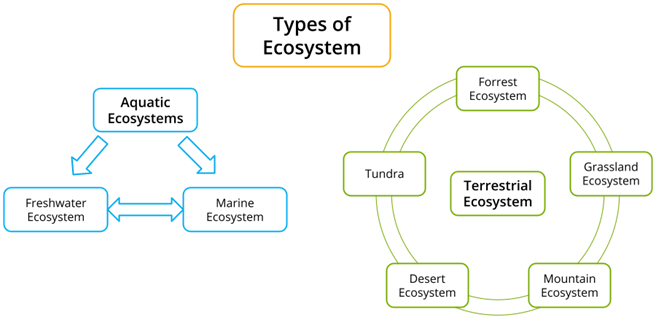
Natural ecosystem:
Ecosystem that originates or forms without the intervention of humans is called a natural ecosystem.
It is of two types:
- Aquatic ecosystem
- Terrestrial ecosystem
Aquatic ecosystem:
"Aqua" means "water".
Ecosystem that is present in water is called as aquatic ecosystem.
Example:
Lake, river, pond, puddle, and sea.
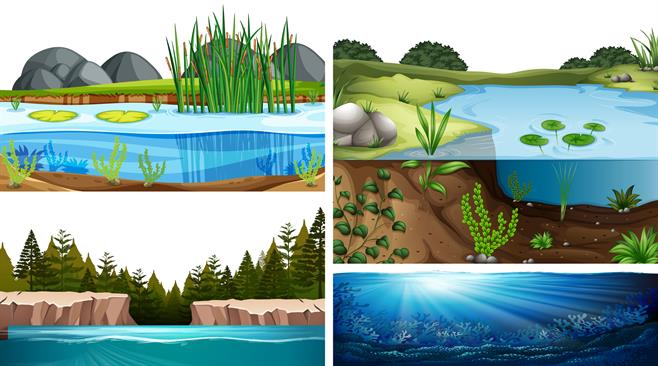
Terrestrial ecosystem:
Ecosystem that is present outside the water body and which are based on land is called a terrestrial ecosystem. 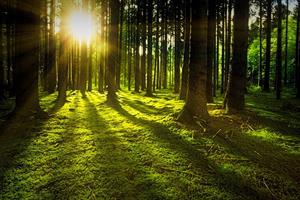
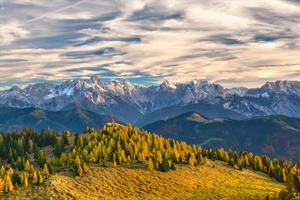
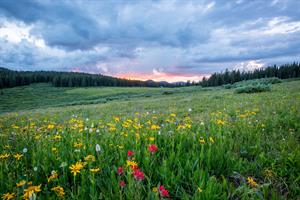
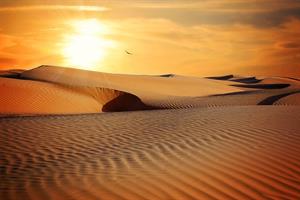
Example:
Forests, mountains, grasslands, deserts, coastal regions are some examples of natural terrestrial ecosystem.




Artificial ecosystem:
The artificial ecosystems are created and maintained by humans and have characteristics of the natural ecosystems. They are simpler than the natural ecosystem.
- It can be terrestrial - paddy fields, garden.
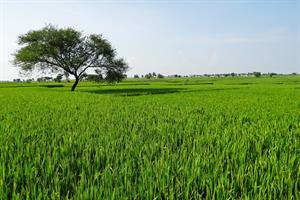
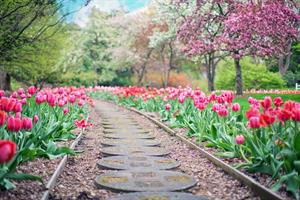
- It can be aquatic ecosystem - like a fish tank.
Aquarium is a place where fishes and other organisms like plants are maintained. Aquarium can vary in size, and can range from a small tank to a large building with one or more large tanks.
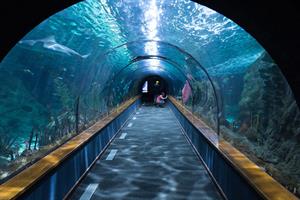
Terrarium is a place wherein terrestrial animals, plants and other organisms are maintained. Aquariums, terrariums are used to observe plants and animals closely, and also used for decorative purposes.
